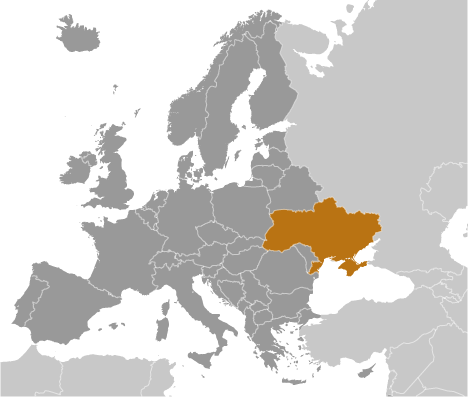HISTORICAL BACKGROUND
The 1996 Constitution does not include a specific general right of access to information but contains a general right of freedom of collect and disseminate information and rights of access to personal and environmental information. Article 34 states that "Everyone has the right to freely collect, store, use and disseminate information by oral, written or other means of his or her choice." Article 32 states that "Every citizen has the right to examine information about himself or herself, that is not a state secret or other secret protected by law, at the bodies of state power, bodies of local self-government, institutions and organisations." Article 50 states that "Everyone is guaranteed the right of free access to information about the environmental situation, the quality of food and consumer goods, and also the right to disseminate such information. No one shall make such information secret."
The 1992 Law on Information is a general information policy framework law that includes a citizen's a right to access information. It sets 5 principles:
• guaranteed right to information;
• transparency, accessibility, and freedom of information exchange;
• unbiased and authentic information;
• complete and accurate information;
• legitimacy of receipt, use, distribution and storage of information.
The law allows citizens and legal entities to request access to official documents. The request can be oral or written. The government body must respond in 10 calendar days and provide the information within a month unless provided by law.
Documents can be withheld if they contain state secrets, confidential information, information on law-enforcement authorities or investigations, personal information, interdepartmental correspondence for policy decisions prior to the final decision, information protected by another law, and information on fiscal institutions.
Denials can be appealed to a higher level at the agency concerned and then to a court.
Government bodies are required to set up information services, systems, networks, databases and data banks to facilitate information needs.
Citizens are also given rights to access their personal information and know what is being collected by whom and for what reasons. They can also demand its correction and limits on its use. Appeals of this are to a court.
A review of the law by the OSCE/Council of Europe described it as "confusing" and noted problems with the lack of a definition of official information and overly discretional exemptions. The OECD's Anti-Corruption Network for Transition Economies recommended in January 2004 that the Government improve the functioning of the law:
In the area of access to information and open government, consider creating an independent office of an Information Commissioner to receive appeals under the "Law on Information", conduct investigations, and make reports and recommendations. Consider adopting a Public Participation Law that provides citizens with an opportunity to use information to affect government decisions.
While President Kuchma was in power, there were significant problems with access to information. Many regulatory acts and decisions were regularly stamped as non-public. Since the Orange Revolution, there have been some recent improvements. In 2005, there were a number of minor amendments to the Law on Information, and the Civil Code was also amended in December 2005 to remove a provision which prohibited the collection of state secrets or confidential information. Following a prolonged campaign by the Kharkiv Center, the government in 2006 released a list of decrees issued between 2001 and 2005 that had previously been stamped "Not to be Printed" or "Not to be Published". The Ministry of Justice admitted that the use of the stamps was illegal. The use of the stamps had significantly declined since the Orange Revolution. The group is recommending amendments to the Law on Information to better define what information can be restricted. President Yuschenko has recently announced that a new law will be drafted but a number of NGOs recommended that the government focus on properly implementing the current one.
The 1994 Law On State Secret sets broad rules on the classification information relating to defense, foreign affairs, state security and other areas that disclosure would cause harm to the state. It was expanded in 1999 to cover other non-military areas. It create three categories of protections "Specially Important", "Top Secret" and "Secret". Information can be classified for 30 years in the top category. The List of Information that belongs to State Secrets (LLISS) defines what can be classified. The LLISS was substantially revised and expanded in 2005 but still retains many problematic sections.
The Law On National Archival Fund and Archival Bodies allows for access to records once they are in the possession of the Archives. Documents containing state secrets can be withheld until they are declassified by the public authority. Personal information can be withheld for 75 years.
The Law on Access to Court Decisions was approved in December 2005. It gives a right of access to court decisions and requires that courts create a register of all court decisions and make it freely available via the Internet.
Ukraine signed the Aarhus Convention in 1998 and ratified it in November 1999. Access is under the Law on Information.
2004 freedominfo.org Global Survey Results - Ukraine





















